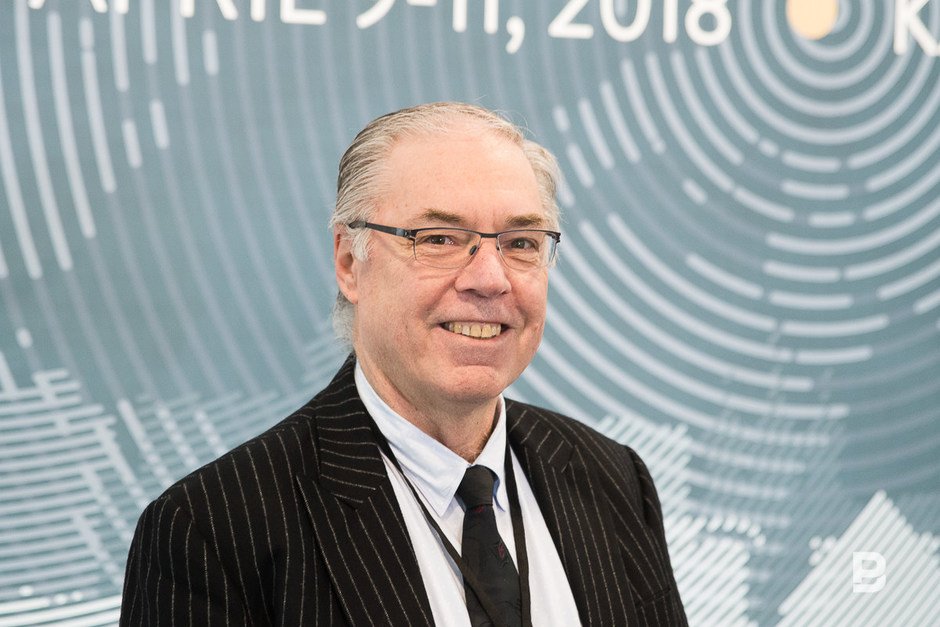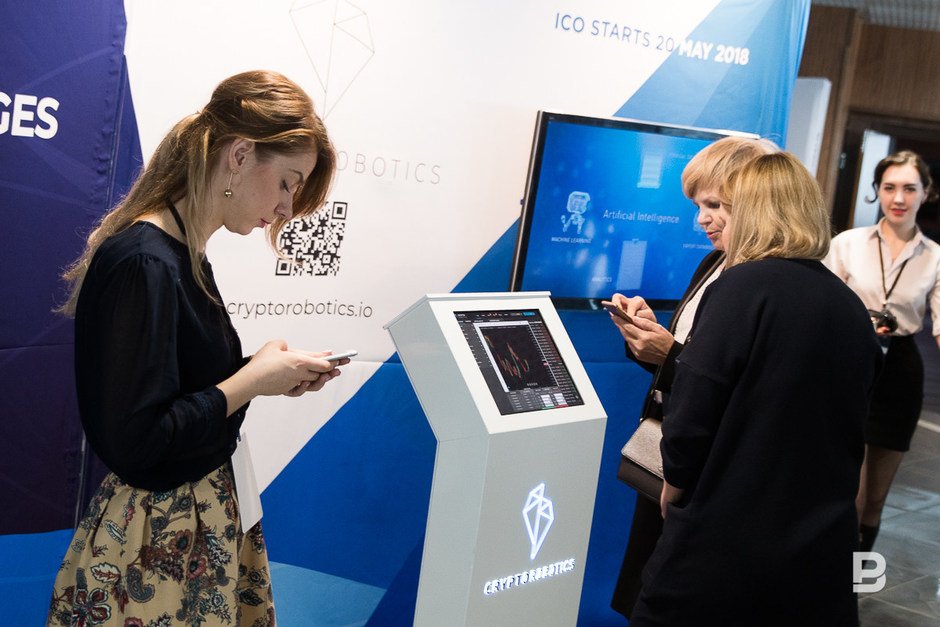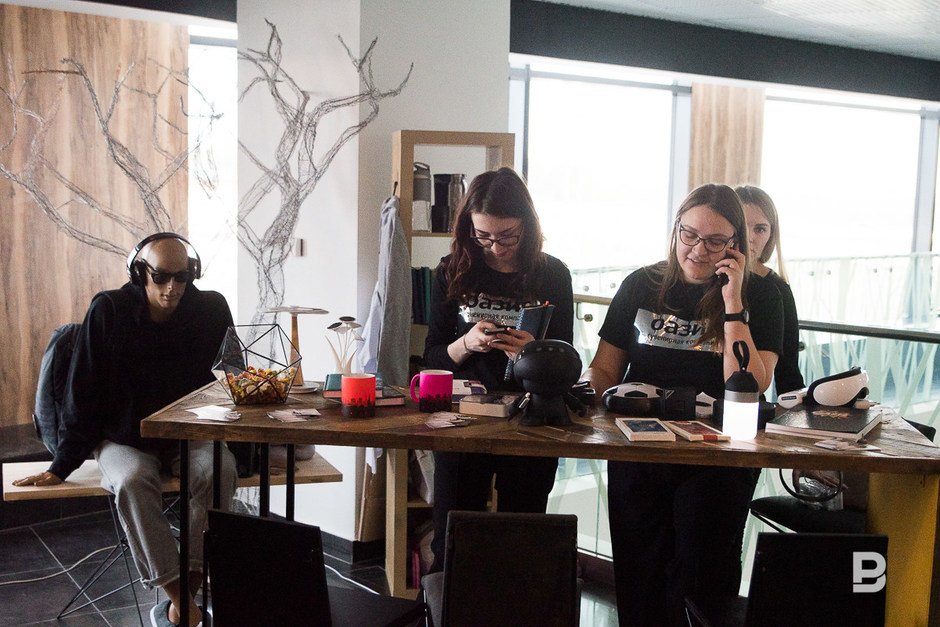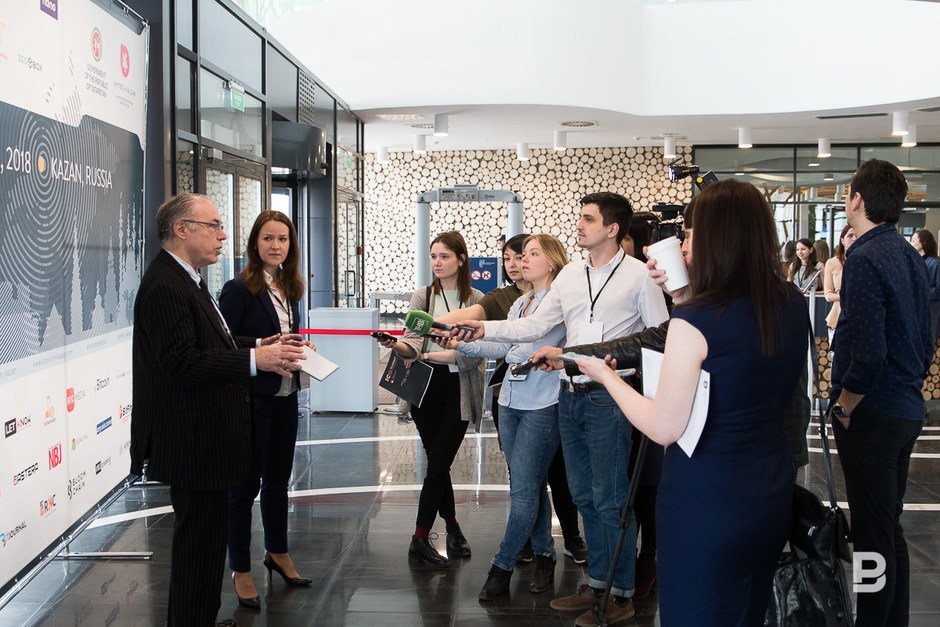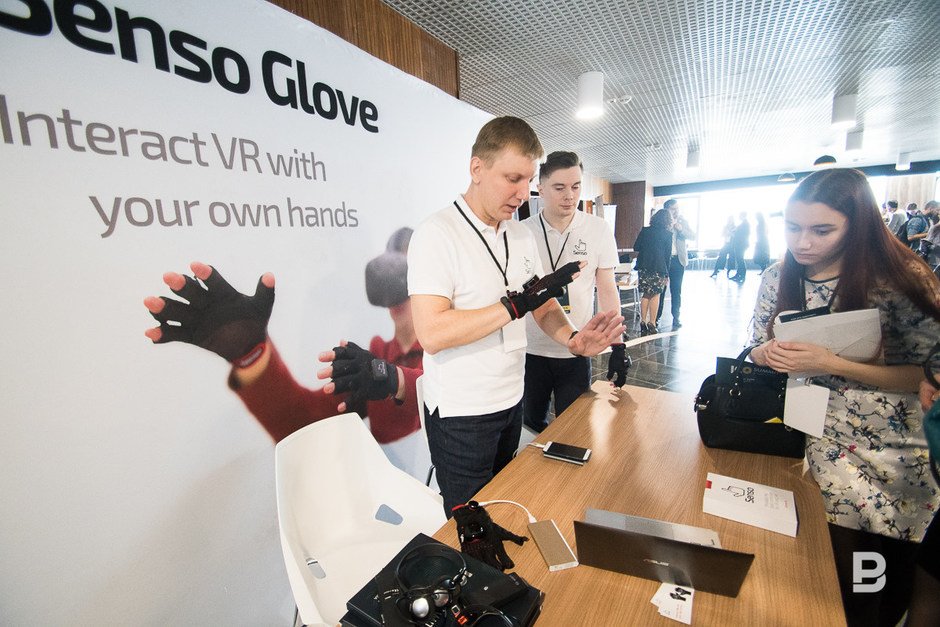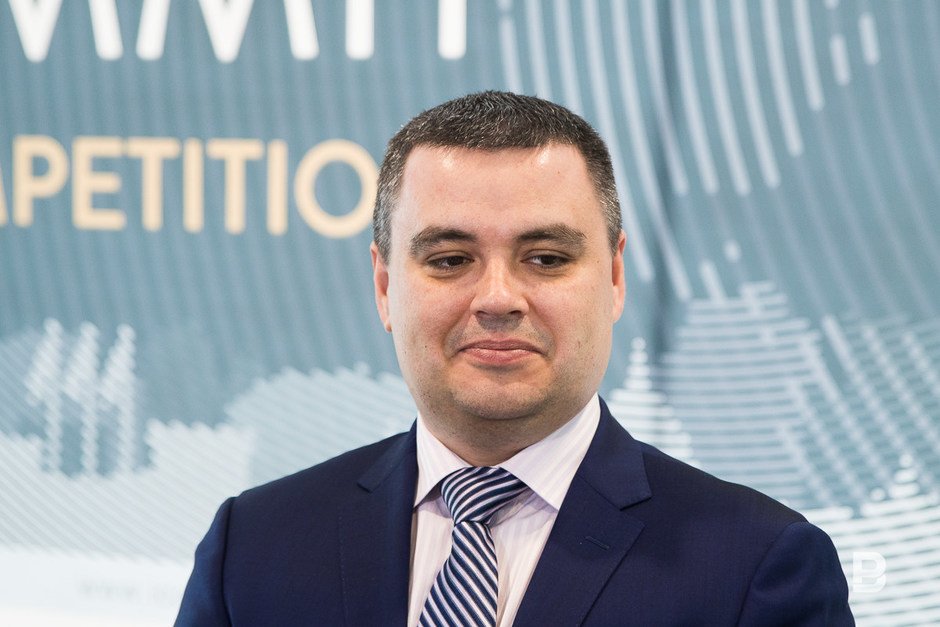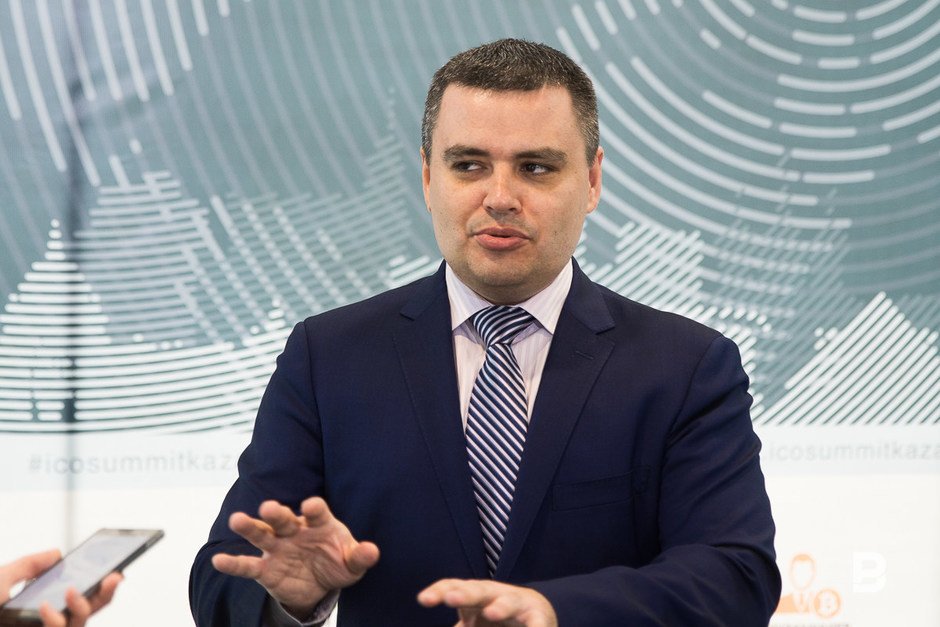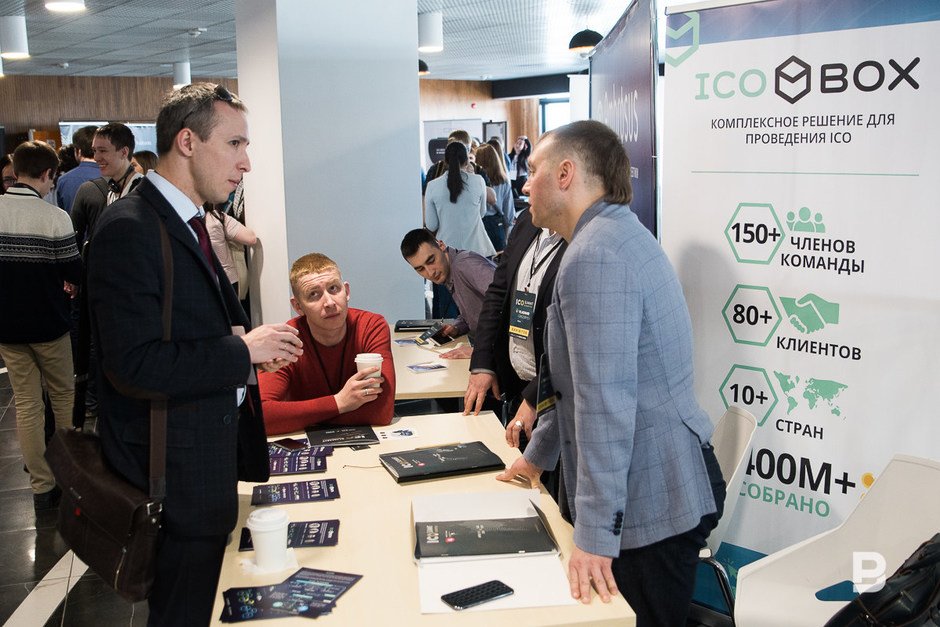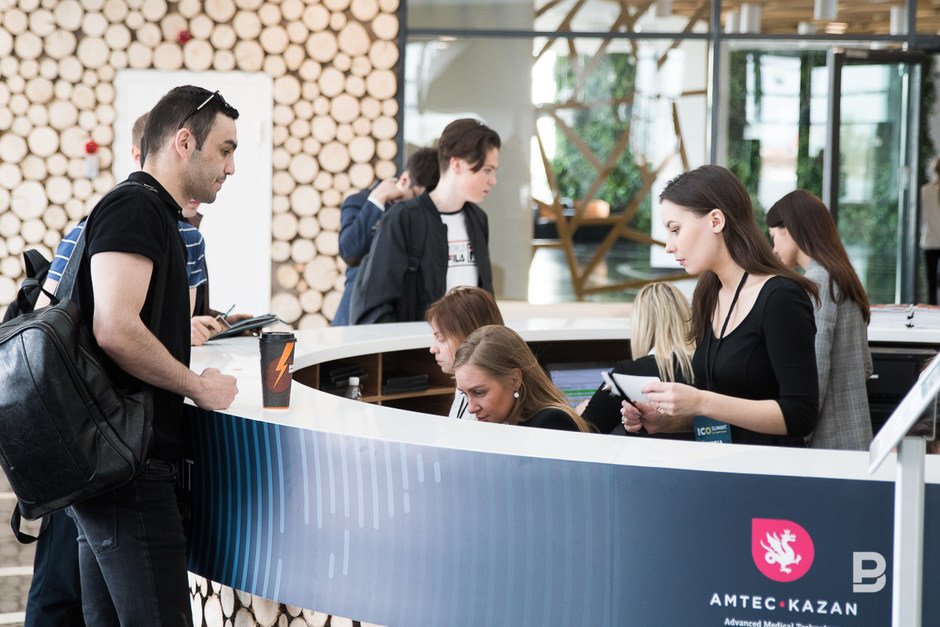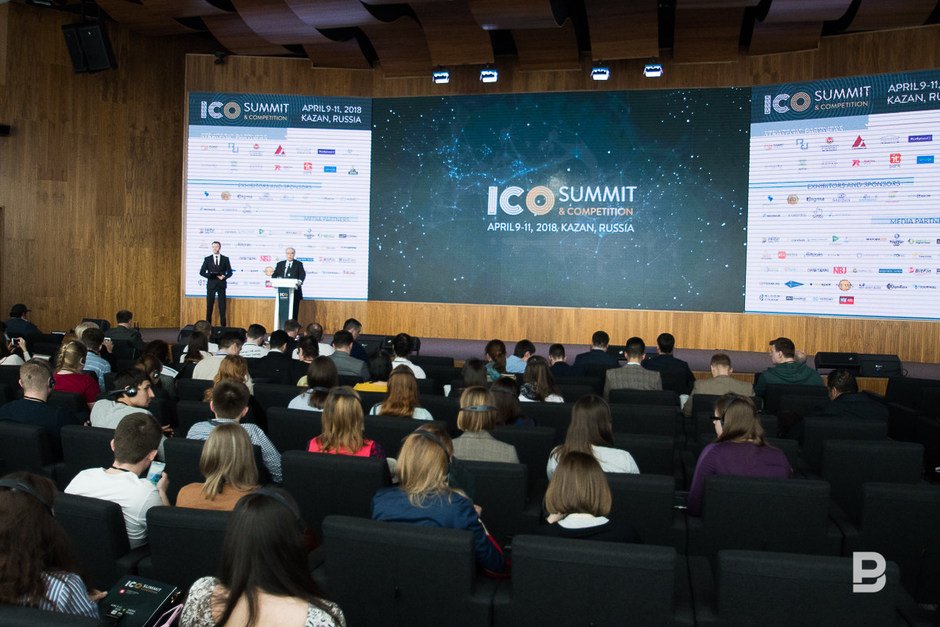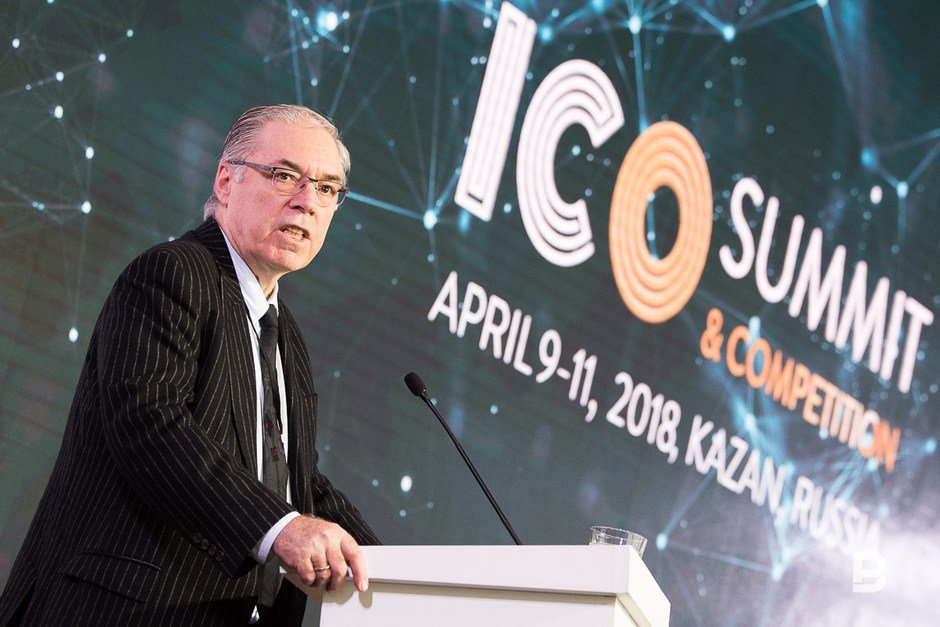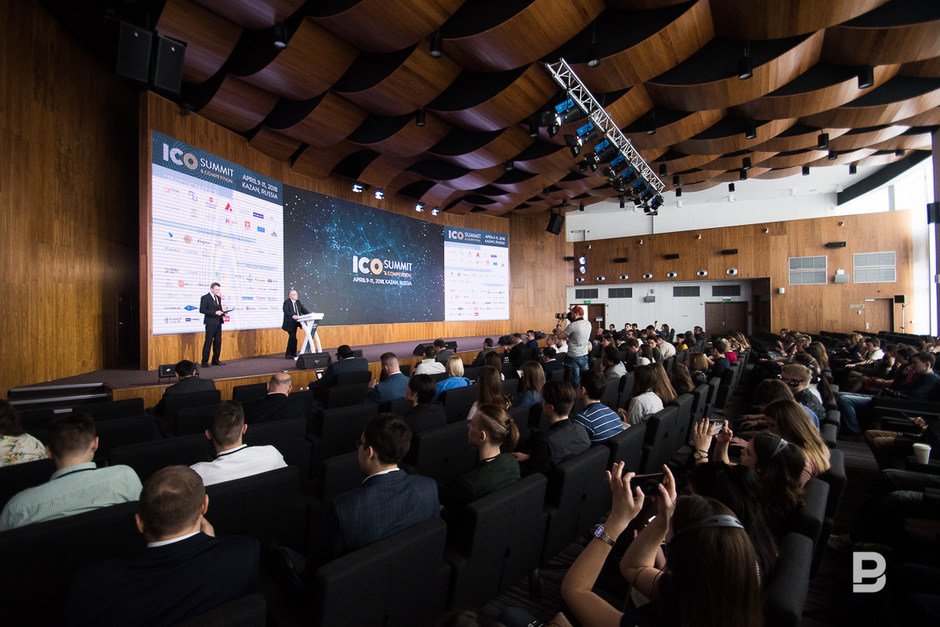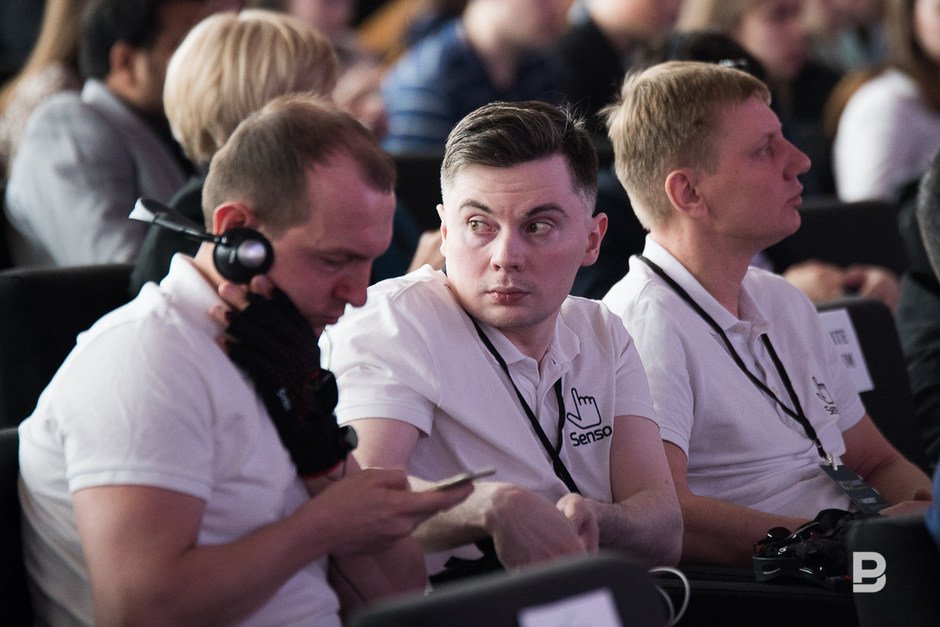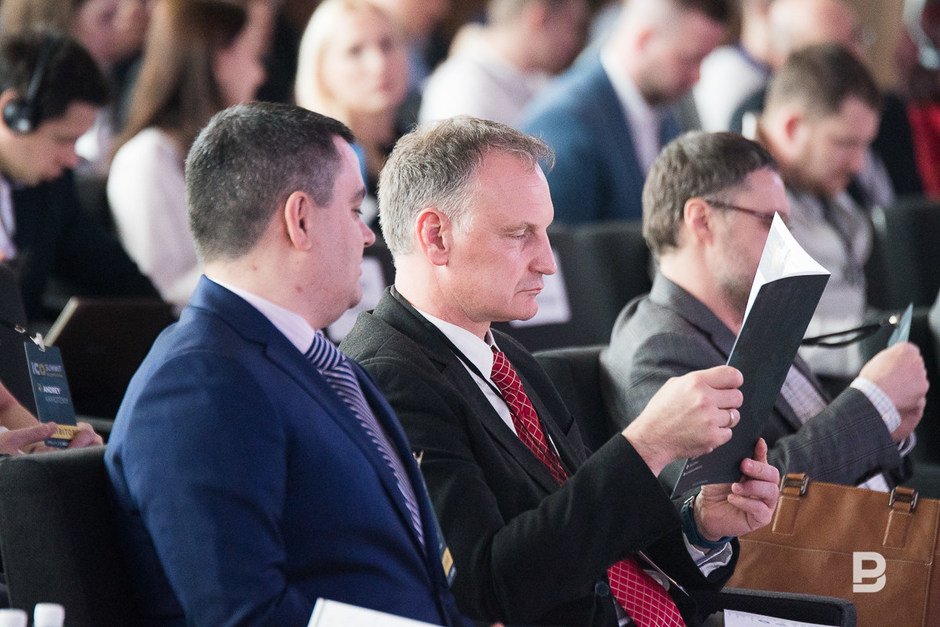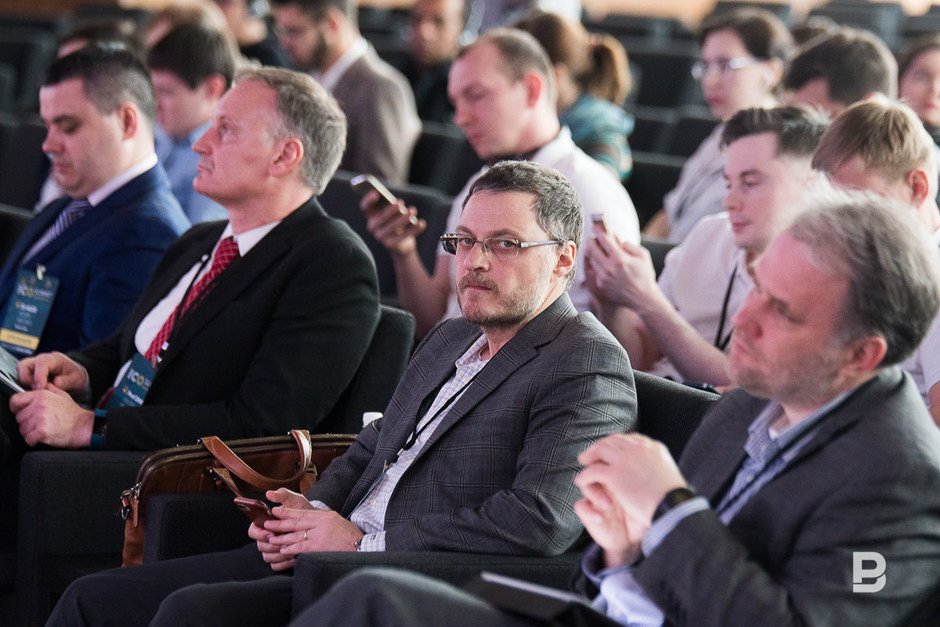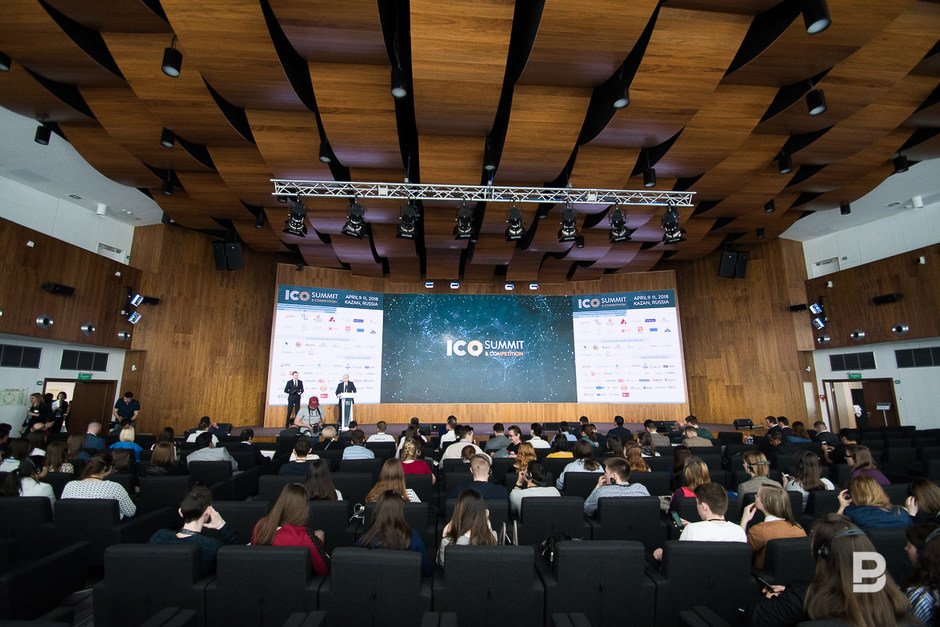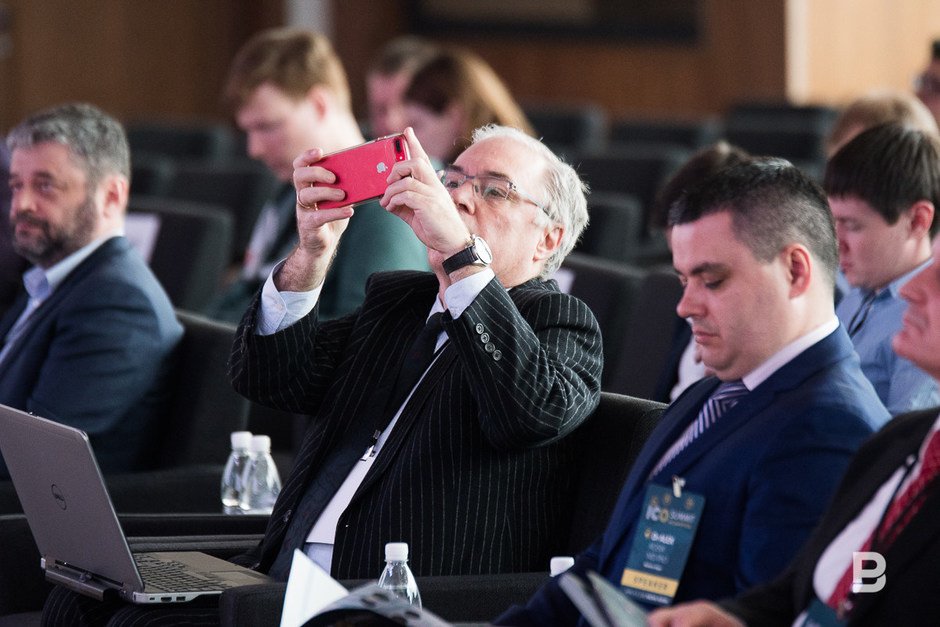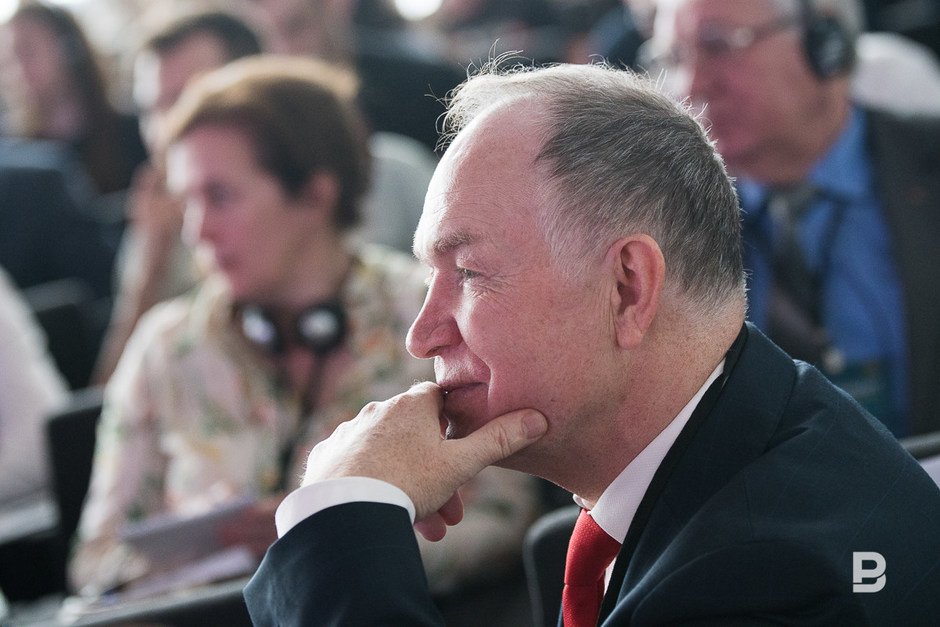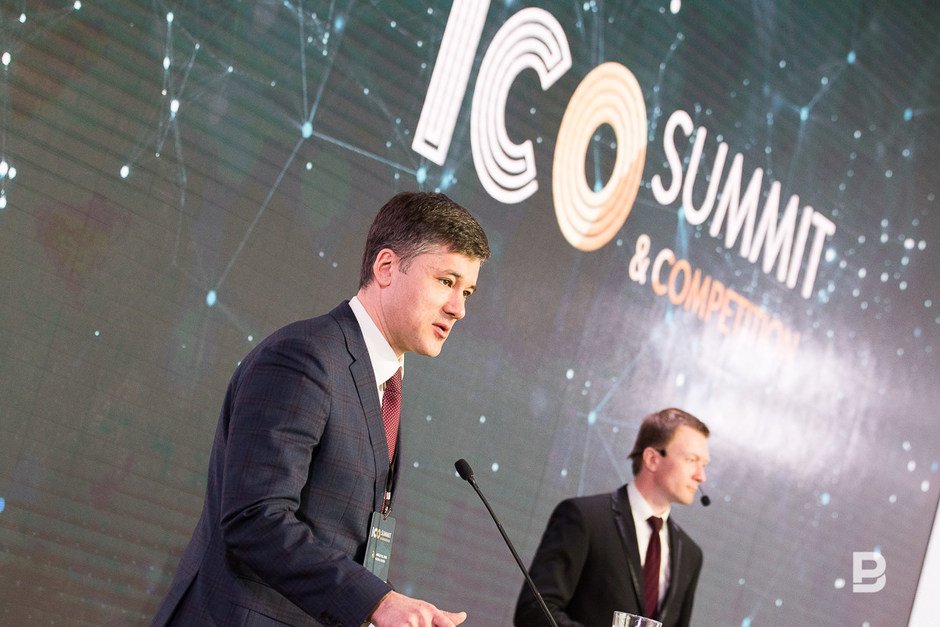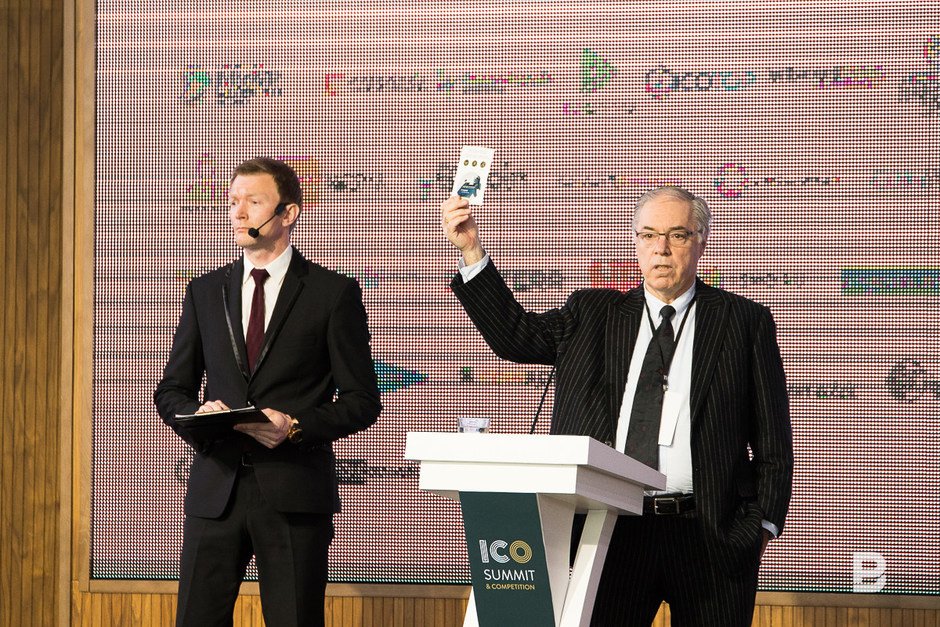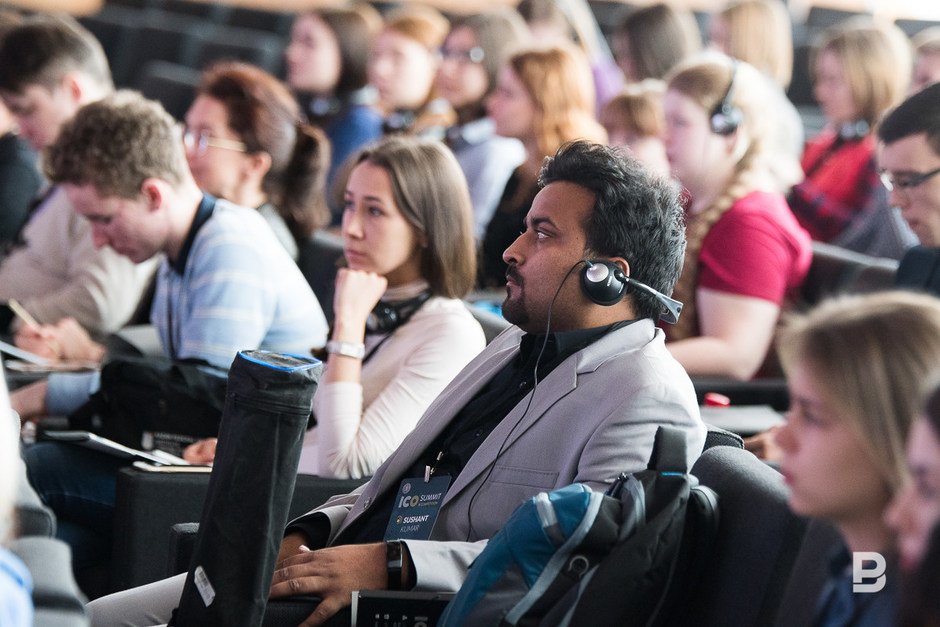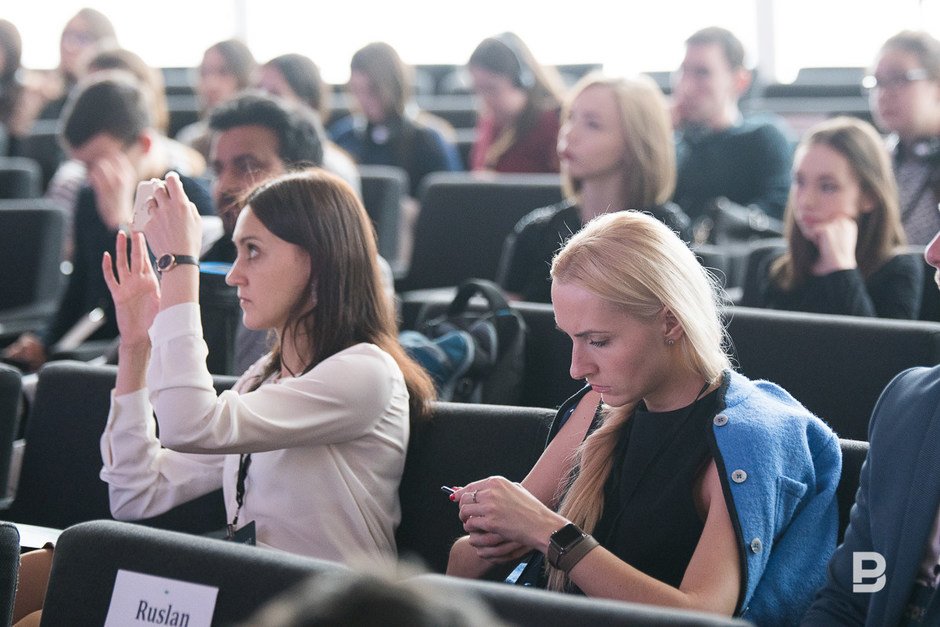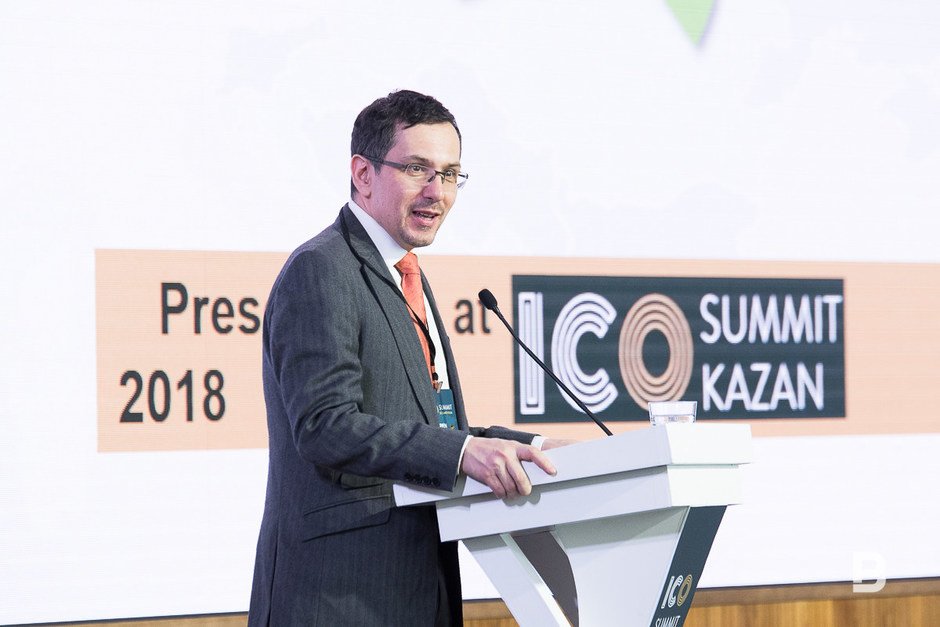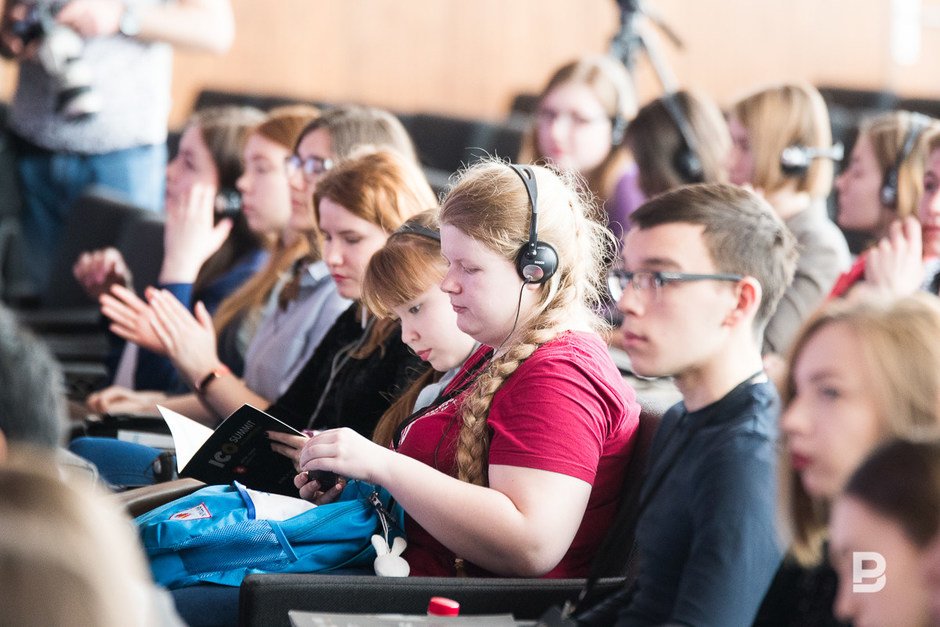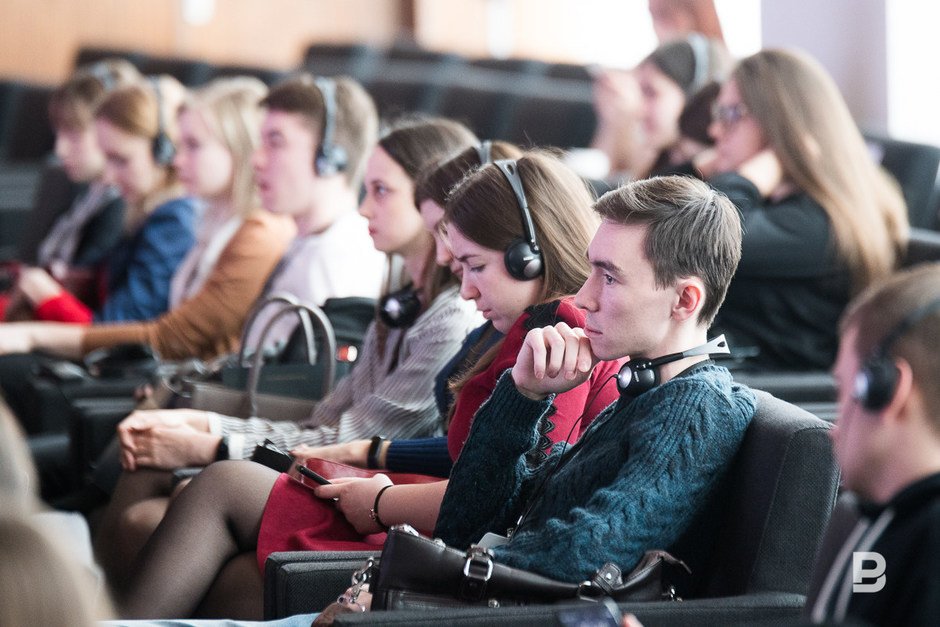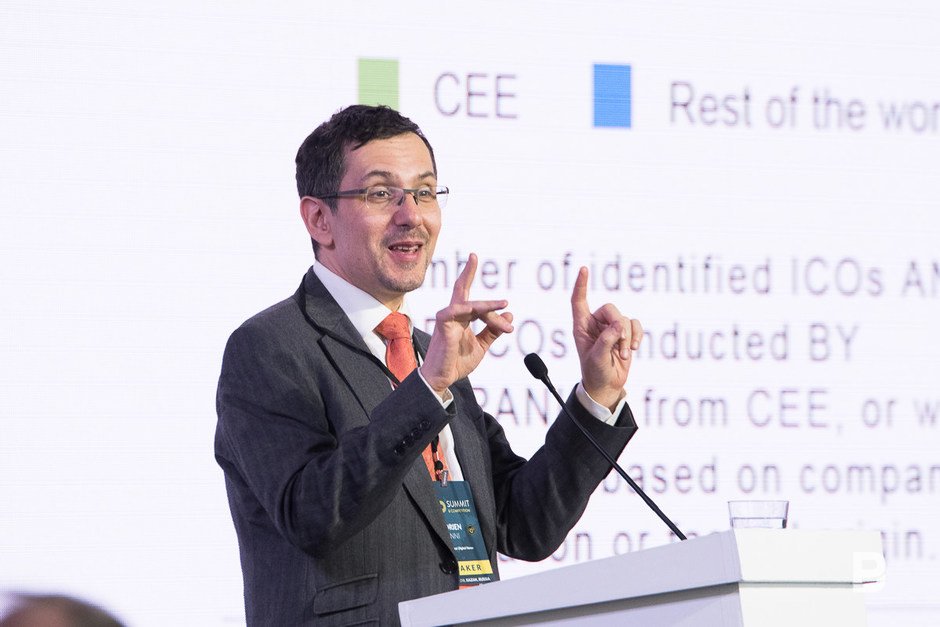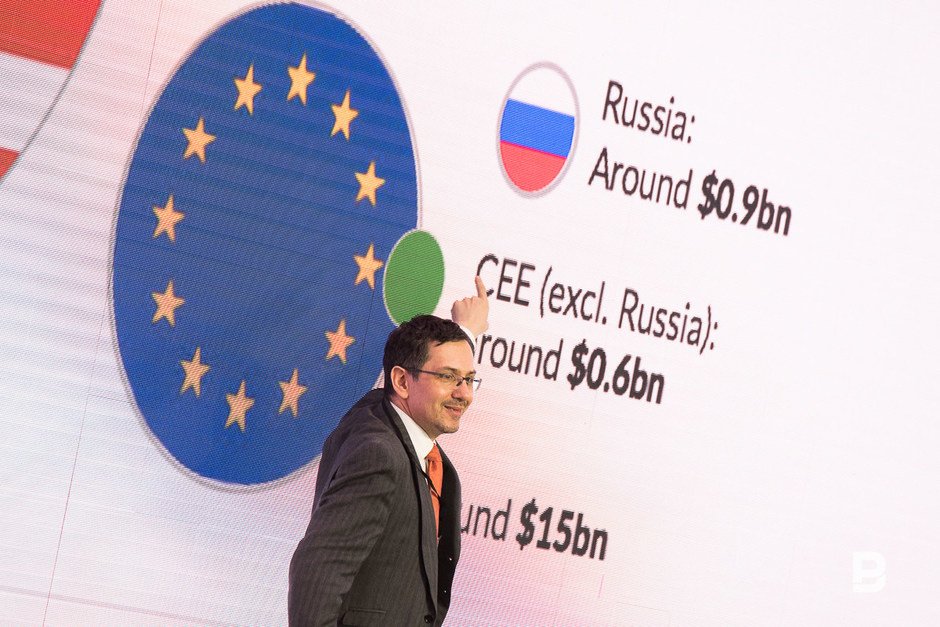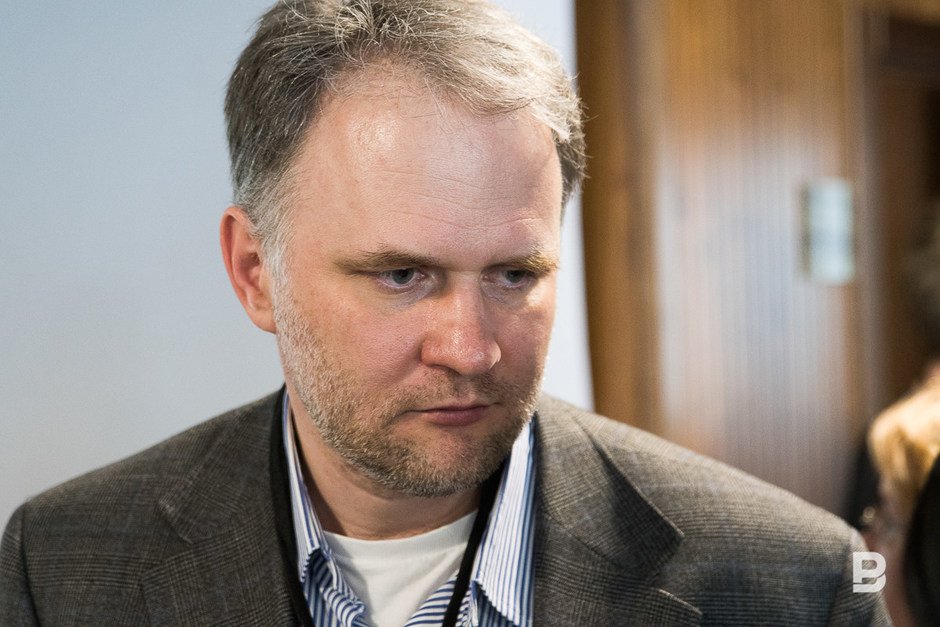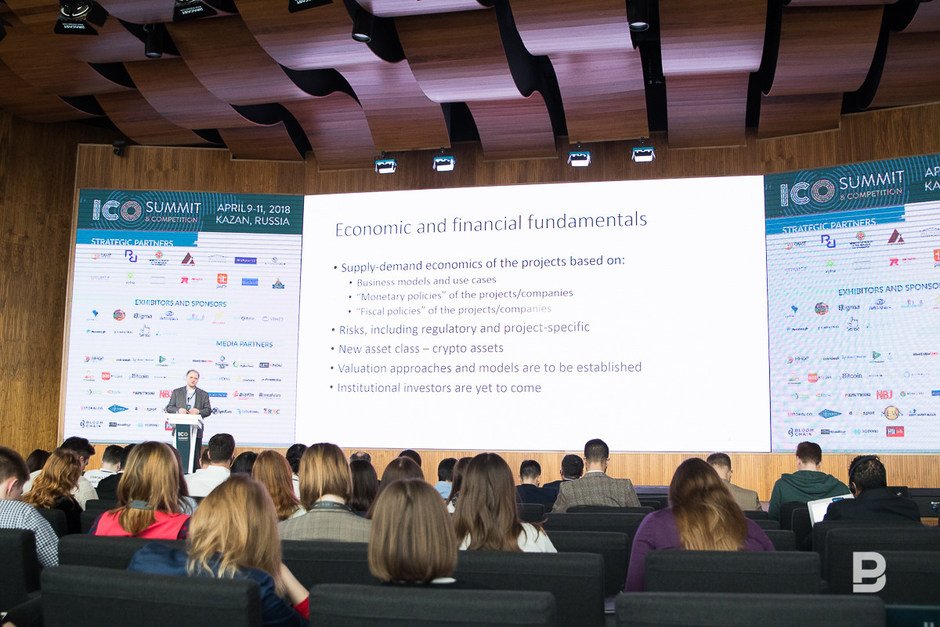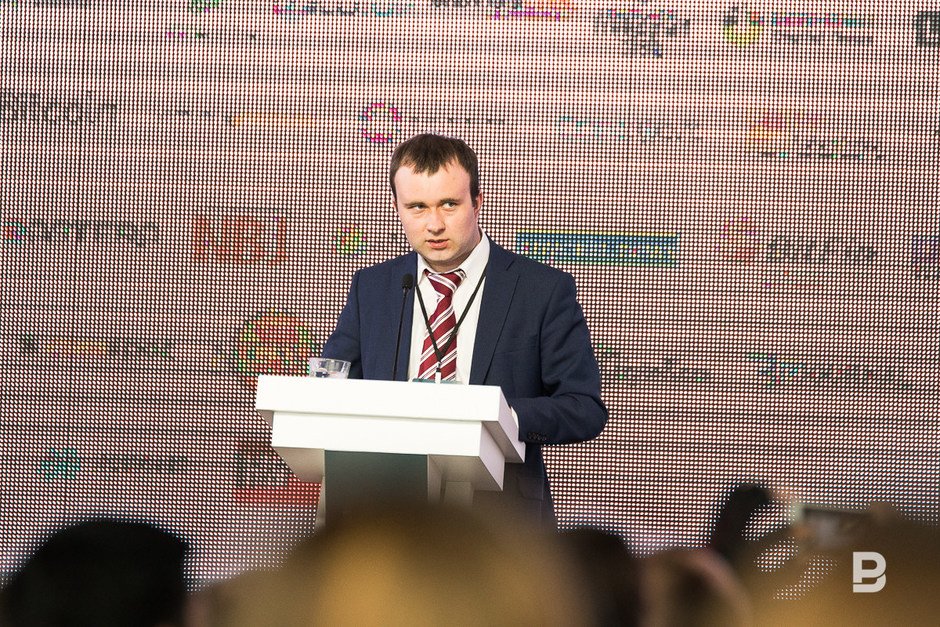''Russia is a superpower in terms of ICO — it occupies a world leading position''
The international conference ICO Summit ended on 11 April in Innopolis. The event discussed a wide range of issues: from the use of blockchain in healthcare and unjustified hype around this technology to the use of ICO by Russian companies, bills designed to legalize cryptocurrencies, and politicians who interfere with venture investors. Read the details in the material of Realnoe Vremya.
''Blockchain has not been applied in healthcare on a permanent basis in any country of the world yet''
More than 300 delegates from 13 countries of the world — experts, representatives of government agencies, as well as investors interested in development of blockchain technologies — arrived in Tatarstan to participate in ICO Summit. The organizer of the event was the educational centre of high medical technologies AMTEC Kazan, so it is logical that the lion's share of the sessions was devoted to digital healthcare. The deputy minister of health of the Republic of Tatarstan, Ildar Fatikhov, was assigned to address the guests on behalf of the leadership of the republic.
The invited experts spoke about high technologies in health sector more specifically. According to Alex Kosik, a serial entrepreneur, expert in medicine and high technologies, blockchain in healthcare is just one of the links in a chain that allows this chain to become a little more open, democratic and controlled.
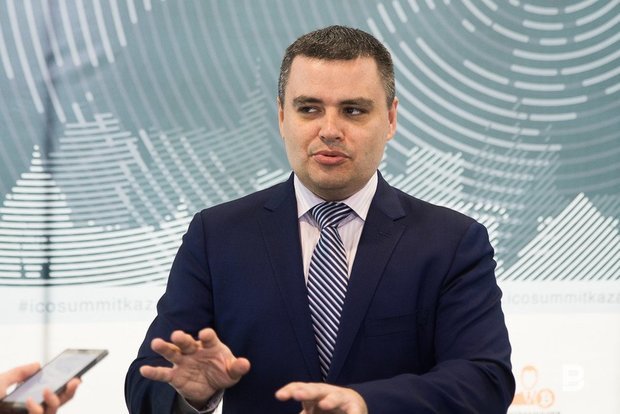
''I would like to note that this is especially important for the development of drugs. The research results will be recorded in blockchain, and they will be non-erasable, permanent. Officials in healthcare and doctors will have the opportunity to see what works and what does not work, they will see all positive and negative effects, as well as how to work with this in terms of delta cost — quality — outcome,'' Kosik cited the example.
The speaker also said that for now ''blockchain has not been applied in healthcare on a permanent basis in any country of the world yet'', but it must be recognized the obvious — we are being on the verge of a serious technological evolution.
''If we introduce electronic medical records, if we provide the possibility of electronic storage of diagnostic results, in the future we can access the same information — this is called the continuity of the process of diagnosis and treatment,'' Alex Kosik cited another example. ''However, it is worth emphasizing that we are talking about a distant and bright future, but if we don't strive for it already now, then nothing will happen.''
The head of R&D Ribitzky, Dr. Ron Ribitzky, also joined the discussion of blockchain in medicine. The speaker considers this direction very interesting and promising, but decided not cite numerous examples of possible use of the new technology in medicine to the journalists.
Dr. Ribitzky said he was very often asked what blockchain is and about possible trends. As an expert in this field, he knows that they cannot talk about any trends for now because when they talk about them, it means that they can predict something. In this area, it is impossible to predict anything now. In healthcare, this technology is disruptive because it fundamentally changes the understanding of this field and opens new opportunities, including for individual private medicine, Ribitzki said.
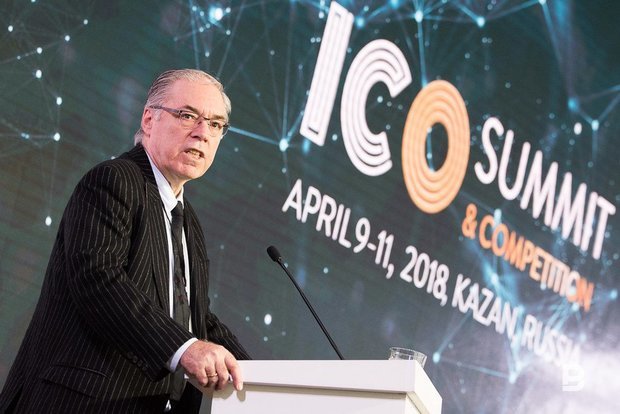
Realnoe Vremya asked the speaker why around blockchain, which, in fact, is not such a special and new technology, there has been such a hype in the last couple of years.
He agreed that the blockchain technology was not so special and that there was nothing specific about it. It's really just another technology. But what surprises him most in blockchain is not the technology itself, but the opportunities it opens, in particular, for new business models. Using blockchain we can make the world a better place. In fact, we will be able to change the world, both in terms of individuals and organizations, and even governments. This is a new way of thinking, a new approach to everything that surrounds us. But, again, this is just another technology, said Ron Ribitzki.
The speaker is upset by the excessive attention being paid to this technology because he often sees how people playing these games on blockchain believe that they, for example, will be able to completely solve the problem of hunger or eradicate poverty.
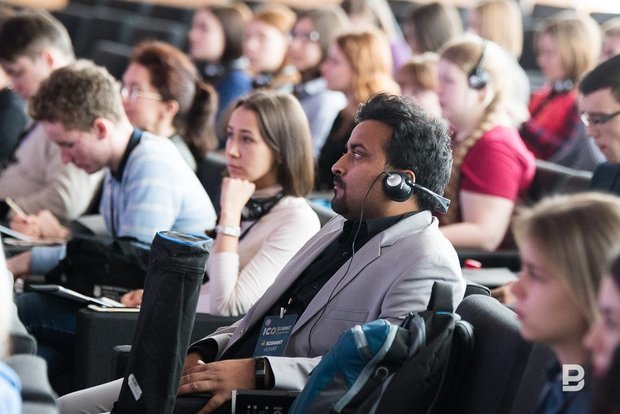
Foreign sources have almost ceased to invest in Russia, Western funds just disappeared
In addition to new technologies in medicine, the summit actively discussed ICO (Initial Coin Offering), the second day of the event started with a lecture on this topic. Adrien Henni, co-founder and chief editor of East-West Digital News, addressed the audience that came from the first floor of Technopark, where journalists was catching speakers to the conference room. The expert presented an overview of Russian and European technology markets.
According to Henni, in global venture capital market, Russia occupies less than 1% and has less than $1 billion of investments a year, but, at the same time, our state is the largest region of Central and Eastern Europe by ICO. The expert specifies that the data presented were calculated at the place of registration of firms, but it is worth considering that many Russian companies are registered in other countries — for example, in China or Switzerland.
Russia is a superpower in terms of ICO, he stated. It occupies one of the leading positions in the world. In 2017, France carried out 10 times less ICO than Russia, Henni said. Central and Eastern European countries occupy about 20% of the global market of ICO. If we consider Russia not in comparison with other countries of this region, we will see that its share in the global ICO market is about 10%. Henni believes it to be an outstanding result.
The speaker also explained why Russia occupies such a large share of the market. First, in Henni's opinion, in terms of technology our country takes a rather strong position, and in recent years a huge contribution has been made to strengthening of technological industries, but this is not always obvious abroad. At the same time, Russia has a very strong and impressive blockchain community.
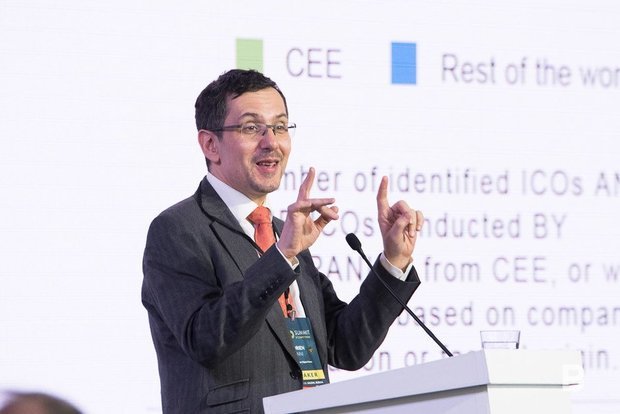
However, in Russia there is an abysmal lack of venture capital, Adrien Henni said. Foreign sources have almost ceased investing in Russia, Western funds in the last 2-3 years have simply disappeared from the country. The reason was the prevailing international situation. Investments are not prohibited by sanctions, but because of what happened, they have become more difficult. At the same time, many Russian investors are beginning to actively invest in foreign projects, so the money for Russian startups is becoming less, Adrien Henni added.
Making the report, the expert noted that last year Russia announced quite a lot of plans and projects, but not all succeeded. In total, about 1,000 ICO were announced in 2017, 25% of them failed before reaching the initial offering, 67% did not reach the fundraising goal, 5% achieved the goal but 'were frozen' after ICO, and only 3% fully implemented their plans. Among the largest ICO last year, the speaker named Bankex with 70 million dollars, as well as Game Credits with 53 million dollars.
There are many players in the market who believe that they can get tens of millions of dollars after ICO, but they do not even bother to negotiate with investors. They think it's easy to get a lot of money. So this opportunity attracts a huge number of people who are not always professionals, Henni warned.
''I do not see how these legislative initiatives will be applied in practice''
Initial coin offering, cryptocurrencies, blockchain — all this has recently been of interest to the governments of almost all countries of the world. The authorities faced the issue of state regulation. In order to keep up with foreign counterparts, a few months earlier the Ministry of Finance of the Russian Federation published a draft law ''On digital financial assets'', designed to legalize and regulate the cryptocurrency sphere.
The document defines mining as entrepreneurial activity, cryptocurrency and tokens are not a legal means of payment in the territory of the Russian Federation, and digital assets are legalized through the concept of 'other property' and defined as 'property in electronic form'. At the request of Realnoe Vremya, Vitaly Belik, the manager director of the investment company Soft-Meta, commented on the main provisions of this bill.
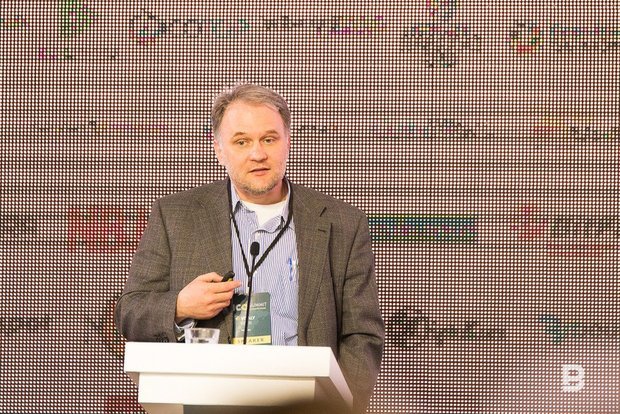
Vitaly Belik: ''In many cases, I do not see how these initiatives can be implemented in technical, institutional and legal terms''
''I always try to look at things from the point of view of wording and from the point of view of how it can be applied in practice and how it will be interpreted by the judiciary or oversight bodies because in the law you can write anything you want, assets can be defined in different ways,'' said Belik. ''In general, at some point I simply stopped looking at all these remarks and cries that 'we will forbid mining'. In many cases, I do not see how these initiatives can be implemented in technical, institutional and legal terms.''
According to our interlocutor, the above mentioned norms can be applied to some extent within the Russian legislative field, as well as within the framework of Russian companies — especially in terms of relations with state bodies and state-owned companies, which can be regulated by the state, since no one prevents Russian state-owned companies from accepting or using conditional bitcoin, but at the same time, no one can prohibit a private person from agreeing with someone and buying cryptocurrency from him.
''The norms you have outlined, in my opinion, cover the entire spectrum — from regulating private relations to state corporate issues. I think it won't work in such blanket approach. Perhaps, as a result it will be a whole set of laws, plus, it will require amendments to the law on advertizing, into the civil code and so on to bring everything to some norm,'' the expert considers. ''In this regard, there is a good, clarifying question that I have often heard from my American colleagues — it is a question of interpretation of the distributed organization and the infrastructure being created. This requires regulation in order to ensure that all these initiatives, which you are talking about, have some practical significance in the future. For example, you ask me the question: ''Can I buy Ethereum from you?'' Well, what law will forbid me to sell you a piece of paper with some bits? I don't understand. Unless, of course, we are talking about some total control, when any bit that I give you must be controlled.''
